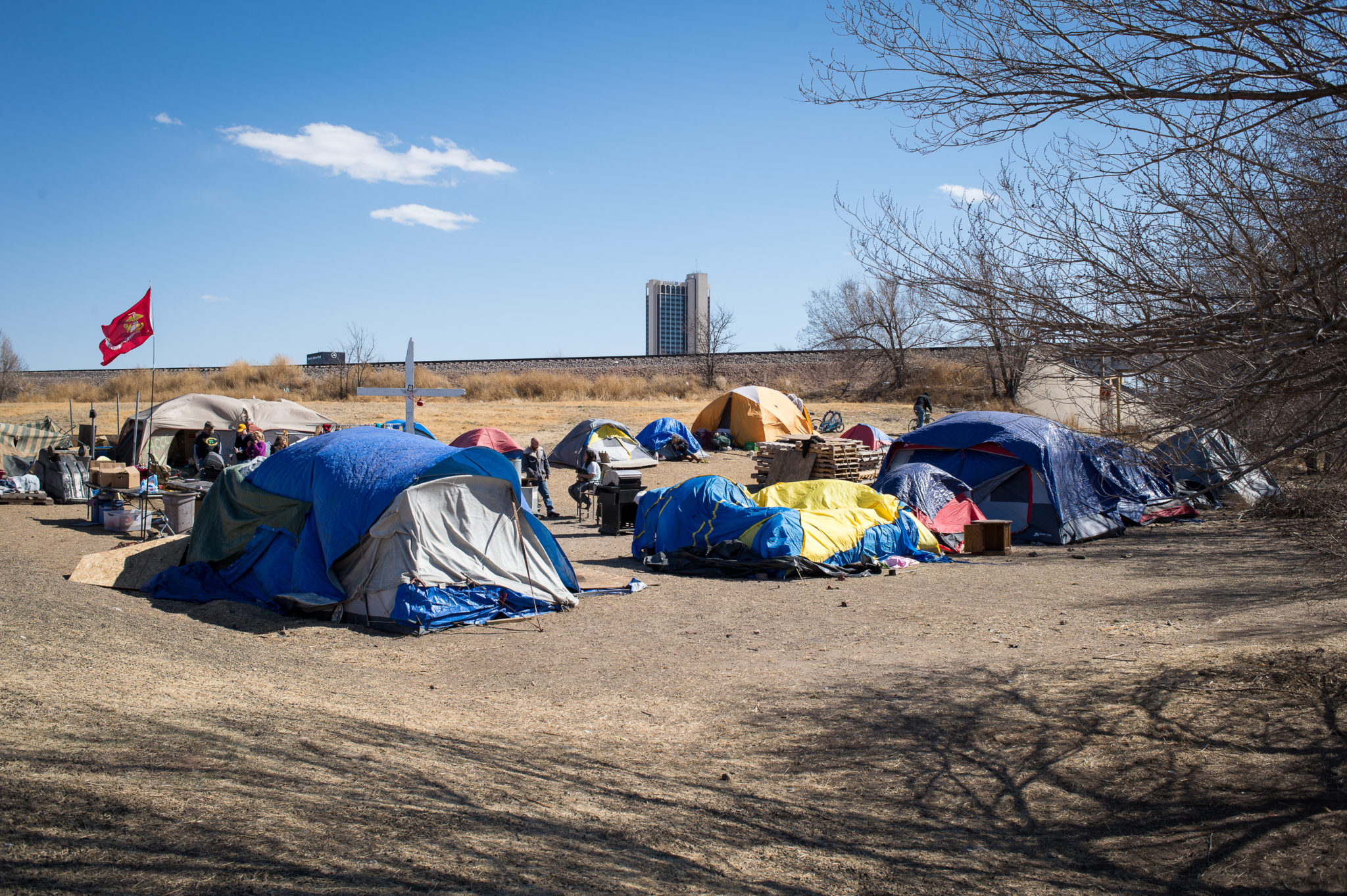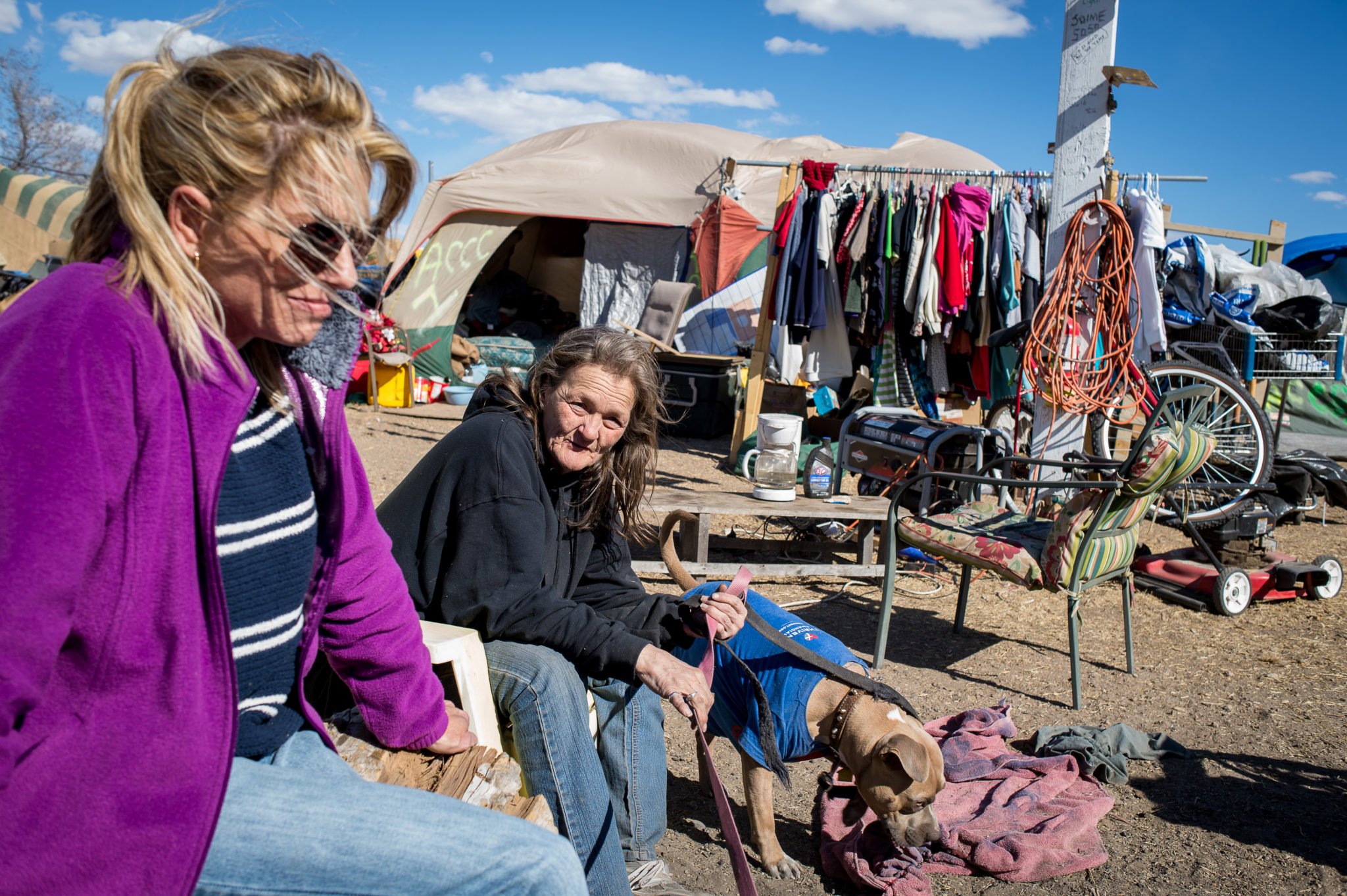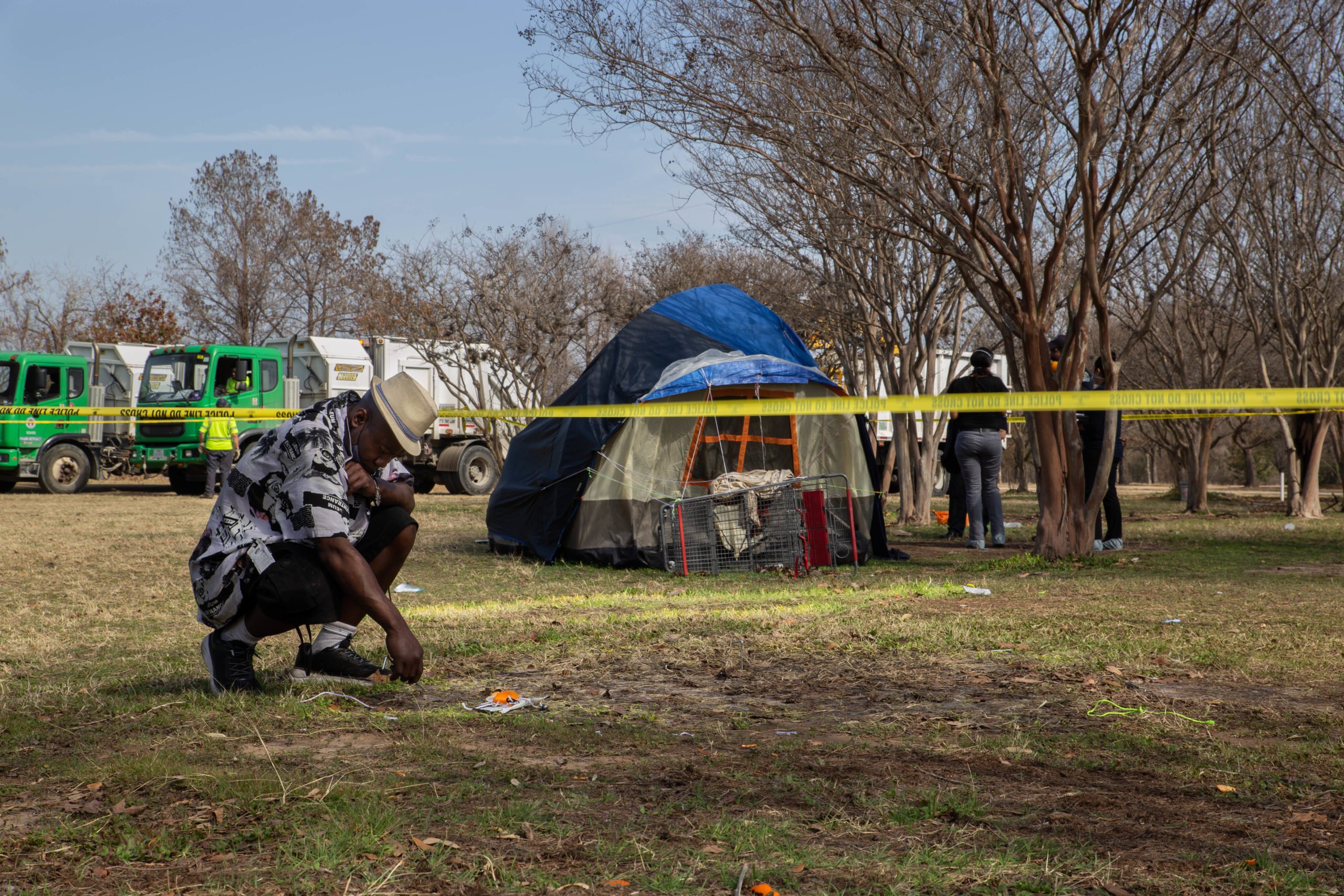
Instead of Fighting ‘Tent City,’ Amarillo Decides to House Its Homeless
The city sued a landowner in 2018 for allowing about 30 homeless folks to set up tents. After a change of heart, city staff asked a camp advocate to help guide a "housing first" pilot program.

A version of this story ran in the March / April 2019 issue.
When Amarillo temperatures dip into the teens, like they did in early January, 36-year-old Dominic Baldivia simply turns up the heat in his two-bedroom duplex near downtown. But a few months ago, staying warm in the Panhandle nights was considerably more difficult for him. Back then he was homeless, living in a tent at Christ Church Camp of New Beginnings, where 30 or so of Amarillo’s homeless who don’t fit into the city’s traditional shelter system sought refuge. At night he would thaw his bones by a campfire, bundle into a subzero sleeping bag and try to sleep through the cold.
“When you’re out there in the cold, you want heat, but you have to do things to acquire that heat. You’ve got to burn calories or go stand by a fire,” Baldivia said. “Now I don’t have to do any of that.” Baldivia is one of the first beneficiaries of a one-year pilot program to house the homeless who live at the campsite. Since it was launched in October, 25 people have been placed in affordable housing. The city-run Coming Home program makes available federally backed rental assistance vouchers, provides furnished apartments and connects the formerly homeless with caseworkers. Known as “housing first,” the approach is becoming increasingly popular throughout Texas and the nation.

Coming Home represents a surprising course reversal by Amarillo city leadership. In early 2018, the city went to battle with the homeless camp, suing the private landowner who was allowing the homeless to stay on his property, invoking an obscure city ordinance that forbids camping even on private property, and arresting at least one homeless advocate who protested on the City Hall lawn. In February 2018, 60 or so Amarillo citizens took to the streets to protest, marching through downtown wielding signs with such messages as, “IT IS ILLEGAL TO BE HOMELESS IN AMARILLO.”
Across the nation, cities have been imposing draconian measures on the homeless by making it illegal to sleep on public property or live in a vehicle, among other restrictions. The crackdown comes as the homelessness rate has begun to tick up again after a decade of decline.
“When you’re out there in the cold, you want heat, but you have to do things to acquire that heat. You’ve got to burn calories or go stand by a fire. Now I don’t have to do any of that.”
But Amarillo’s change of heart represents a different path forward. In October, Amarillo offered an olive branch to Amanda Brown-Hunter, the founder of Christ Church Camp. For the first time, officials gave her access to housing vouchers. City staff also asked her to help guide the pilot program, and even hired one of the camp’s volunteers as a caseworker. “I think the city recognized that they need to try a different method than what has been offered in the past to reach a larger population of the homeless,” she said.
Brown-Hunter said she hopes the program is successful enough that city leaders continue it beyond the one-year trial period. She notes that 11 people are still living in tents at her camp, with “new people wanting to come every day.”



